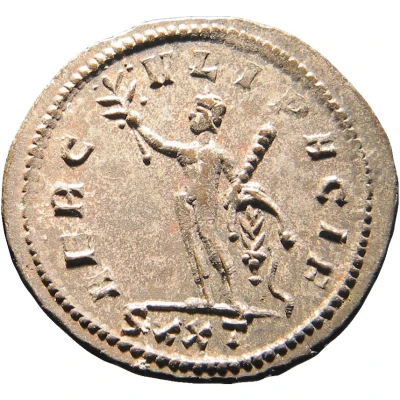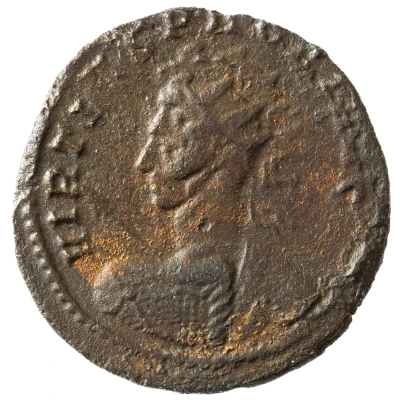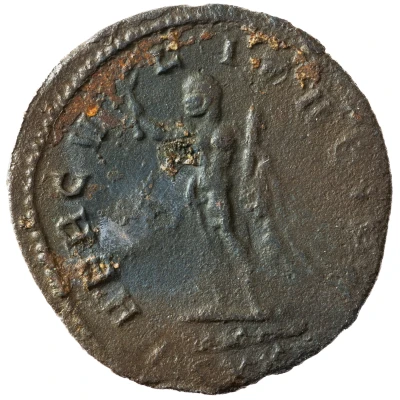Antoninianus - Probus radiate, cuirassed, left; ERCVLI PACIF or HERCVLI PACIF; Hercules
| Silver | 3.3 g | 22 mm |
| Issuer | Rome › Roman Empire (27 BC - 395 AD) |
|---|---|
| Emperor | Probus (Marcus Aurelius Probus) (276-282) |
| Type | Standard circulation coin |
| Years | 276-282 |
| Value | Antoninianus (1) |
| Currency | Antoninianus, Reform of Caracalla (AD 215 – 301) |
| Composition | Silver |
| Weight | 3.3 g |
| Diameter | 22 mm |
| Shape | Round (irregular) |
| Technique | Hammered |
| Demonetized | Yes |
| Updated | 2024-10-05 |
| Numista | N#293501 |
|---|---|
| Rarity index | 100% |
Reverse
Hercules, standing left, holding olive-branch in right hand and club and lion-skin in left hand.
Script: Latin
Lettering:
ARCVLI PACIF or AERCVLI PACIF or ERCVLI PACIF or HERCVLI PACIF
-/-//SXXT
Translation:
Herculi Pacificatori.
To Hercules, the peacemaker.
Comment
Mass varies: 3.195–3.61 g;Diameter varies: 21.75–23 mm;
Source: Online Coins of the Roman Empire (OCRE)
The original RIC text mentions 3 main variations that include a total of 6 bust types and then there are 5 known variants including:
[1] radiate, cuirassed, right, sometimes holding spear (bust B1 and F9);
[2] helmeted, radiate, cuirassed, left, holding spear in right hand and shield in left hand (bust E1);
[3] this type radiate, cuirassed to waist, left, sometimes seen from behind, holding spear and sometimes shield (bust F8, F5 and F1);
[4] (var) F19 bust (;
[5] (var) E8 bust (probuscoins.fr #2268);
[6] (var) E2 bust (probuscoins.fr #3630);
[7] (var) F3 bust (probuscoins.fr #1610);
[8] (var) D1 var bust (probuscoins.fr #487).
Interesting fact
The Antoninianus - Probus coin was part of a series of coins issued during the reign of Emperor Probus (276-282 AD) to celebrate the Roman Empire's military victories and to promote the cult of the Roman gods. The coin features a radiate and cuirassed bust of Probus on the obverse, and an image of Hercules on the reverse, symbolizing the emperor's role as a powerful and victorious leader. The coin was made of silver and weighed 3.3 grams, which was a significant amount for a coin at that time. Despite its small size, the coin is a valuable piece of history that provides insight into the economic, political, and cultural aspects of the Roman Empire during the 3rd century AD.



